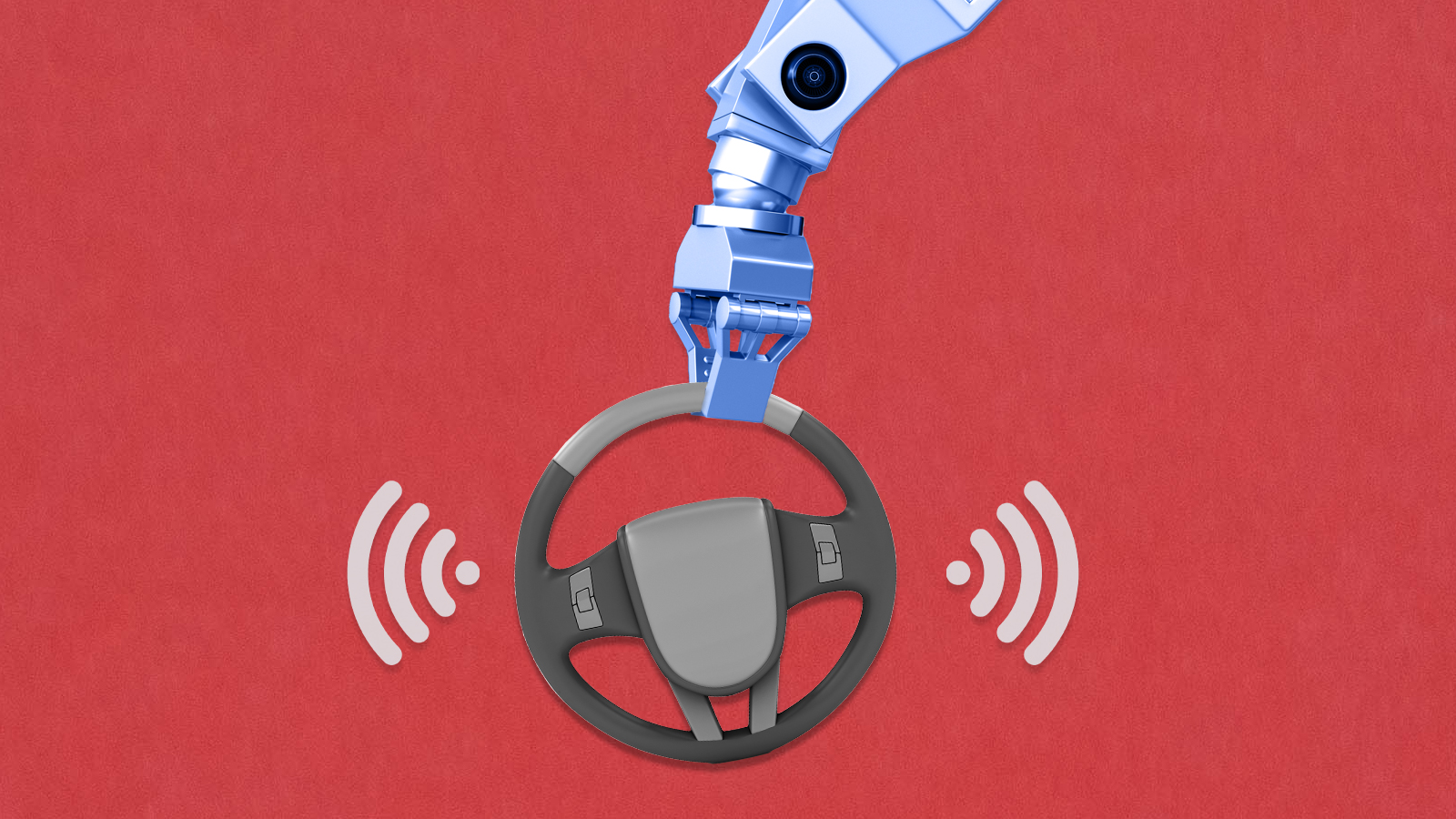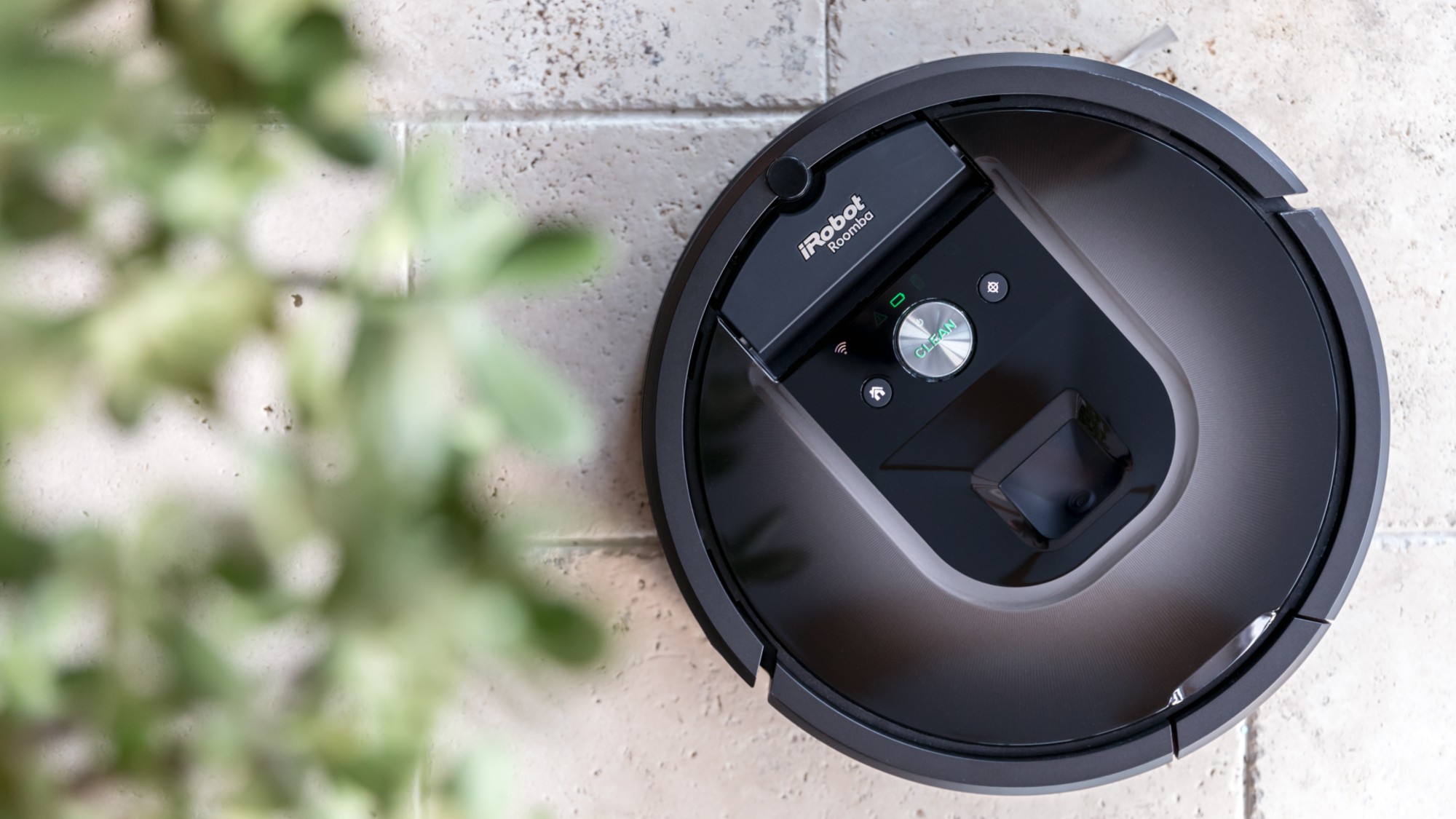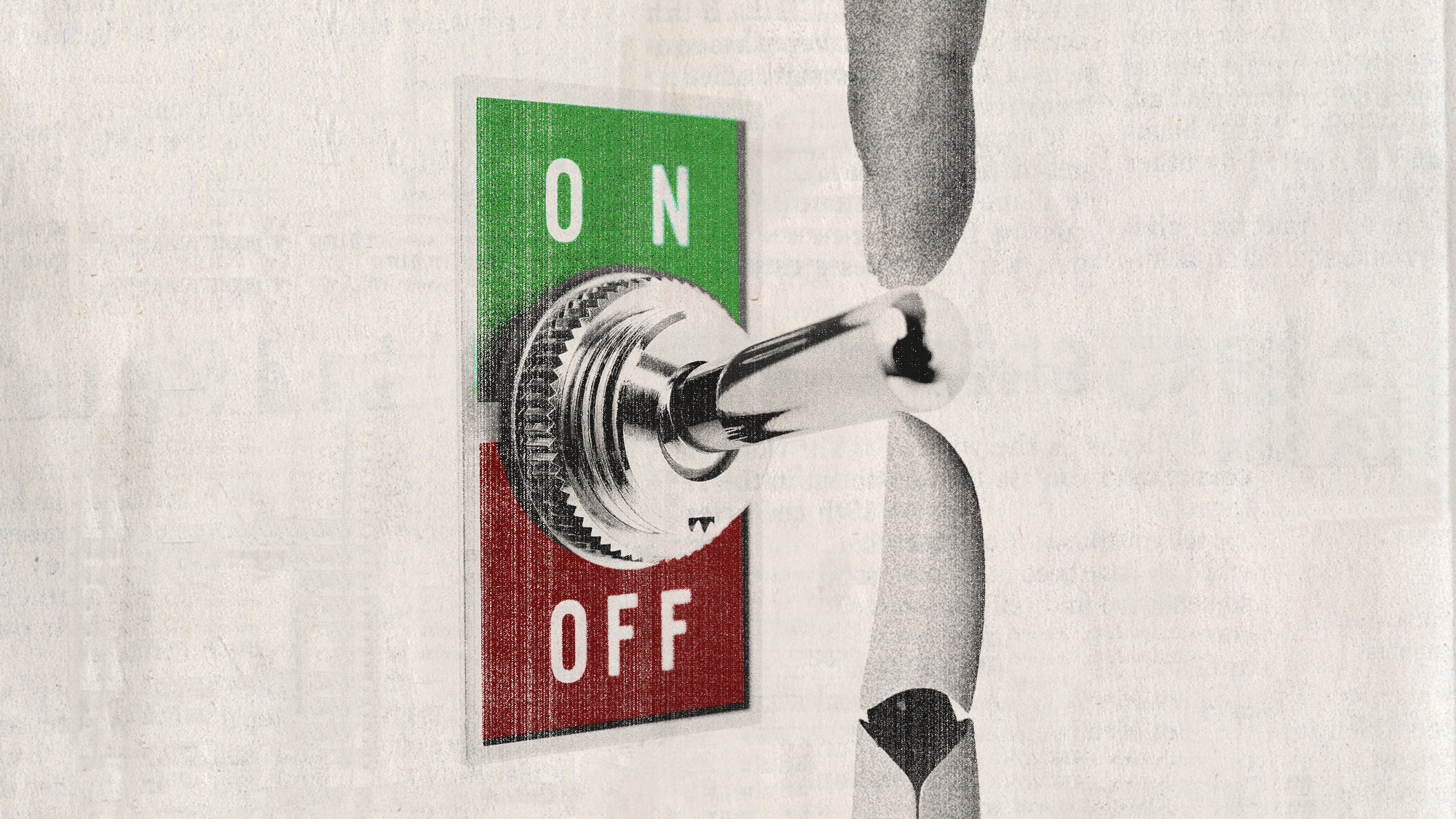The pros and cons of self-driving cars
Point A to point B, completely hands-free


A free daily email with the biggest news stories of the day – and the best features from TheWeek.com
You are now subscribed
Your newsletter sign-up was successful
Artificial intelligence is growing rapidly, and as a result, autonomous or self-driving vehicles are becoming more of a consideration. The use of self-driving cars in the U.S. is limited as of now, with just a few companies like Cruise and Waymo offering the product.
In addition, "public trust in autonomous vehicles is essential to their acceptance," said Jeff Farrah, the CEO of the Autonomous Vehicle Industry Association, in a statement — and approximately 70% of Americans are afraid of fully self-driving cars, according to a 2024 survey by AAA. As technology continues advancing, however, both sides of the debate are revving up.
Con: Machines are not as smart as humans
A new study published in the journal Nature Communications said "accidents involving Advanced Driving Systems occur more frequently than Human-Driven Vehicle accidents under dawn/dusk or turning conditions." While automatic vehicles (AVs) can generally drive with more technical precision than a human driver, "no matter how well any of the technology works, none of it so far emulates human thought, logic or instincts to make split-second decisions," said Forbes.
The Week
Escape your echo chamber. Get the facts behind the news, plus analysis from multiple perspectives.

Sign up for The Week's Free Newsletters
From our morning news briefing to a weekly Good News Newsletter, get the best of The Week delivered directly to your inbox.
From our morning news briefing to a weekly Good News Newsletter, get the best of The Week delivered directly to your inbox.
While the study does suggest that AVs "generally demonstrate better safety in most scenarios," said Mohamed Abdel-Aty, one of the authors of the study, to New Scientist, it is not foolproof. "Unforeseen errors in the perception and prediction systems of self-driving cars can and do cause them to do the wrong thing at the wrong time," said Brookings. "The best conclusion for now seems to be that the safety advantages of self-driving cars are aspirational but have not been proven."
Pro: Self-driving cars could be an accessibility solution
Access to AVs could be a game-changer for those with disabilities and the elderly, who would otherwise have difficulty getting transportation. "Waymo affords agency and autonomy to the legions of other disabled people … to travel independently and be self-sufficient," said Steven Aquino at Forbes. Accessibility features such as wheelchair ramps could be added to vehicles to provide independent transportation options for those who would usually require assistance.
Some have even discussed the prospect of making self-driving accessible vans, which could also encourage socializing among people who usually have difficulty getting out and about. "Although the utility of this technology in facilitating accessibility was not intentional, such benefits demonstrate the industry's potential to enhance accessibility," said Future Transport-News.
Con: They could cause privacy and security concerns
AVs are more susceptible to hacking than normal cars. "Self-driving machines bring more security liabilities because they rely on software and more complex technologies," said Information Security Buzz. "Additional entry points mean more opportunities for outside threats due to increased wireless connectivity." Because of this, the system could be vulnerable to malware and in the worst case scenario, could even be controlled by an outside entity.
A free daily email with the biggest news stories of the day – and the best features from TheWeek.com
Aside from the mechanics of the car, privacy could also be a concern. "Fitted with cameras, microphones, and sophisticated sensors, self-driving cars have long raised flags among privacy advocates," said Fortune. "Depending on the type of information collected by the cars, the level of precision and the frequency at which it's collected, the data could provide a foreign adversary with a treasure trove of intelligence that could be used for everything from mass surveillance to war planning."
Pro: They could mark the end of traffic
The widespread adoption of self-driving cars has the "potential to dramatically reduce traffic congestion," especially in "mega-cities like New York, Los Angeles or Tokyo," said Forbes. "AVs can intelligently interact with each other and the road infrastructure. The instructions that these vehicles receive from different computers allows for a smarter usage of the street through better route calculation and efficient road occupancy, said Earth.org." The caveat is that true traffic reduction requires vehicles to share data with each other, according to a study published in the journal Transportation Research Record.
With an increase in the use of AVs, fewer people would require personal cars. "With less need for parking spaces, city planners could repurpose this valuable real estate, especially in densely populated city centers," said Forbes. "The vast stretches of concrete now used for parking lots and garages could transform into green spaces, recreational zones, pedestrian walkways and bicycle lanes."
Con: They could cause job losses
The shift to AVs is "expected to disrupt employment and sectors such as public transport, taxi and delivery services, potentially resulting in job losses for workers in these industries," said Economics Observatory. "As automated systems replace human drivers, there will be a need for retraining programs to help displaced workers make the transition to new employment opportunities." Over time, the entire legacy industry has the potential to fall apart.
This could "exacerbate existing inequalities" because "workers with lower education levels and fewer transferable skills may find it more challenging to adapt," the outlet added. As a result, "policy-makers should focus on education, training and re-skilling opportunities."
Pro: They could be more environmentally friendly
In the future, self-driving vehicles could possibly help to reduce emissions, as they "use significantly less gas and energy when driving, compared to a vehicle driven by a human," said Greener Ideal. Also, most of the autonomous vehicles being developed and driven currently "are already fully electric," making them less damaging than their gas counterparts. The development could also lead to people purchasing fewer cars and avoiding "unnecessary overlapping trips that contribute to emissions."
However, "powering the heavy computational needs for a large number of devices — from cameras and radars to different sensors and the engine itself — requires great amounts of energy," said Earth.org. Further research and development to improve AV efficiency may help curb this problem in the future.
Devika Rao has worked as a staff writer at The Week since 2022, covering science, the environment, climate and business. She previously worked as a policy associate for a nonprofit organization advocating for environmental action from a business perspective.
-
 Ex-South Korean leader gets life sentence for insurrection
Ex-South Korean leader gets life sentence for insurrectionSpeed Read South Korean President Yoon Suk Yeol was sentenced to life in prison over his declaration of martial law in 2024
-
 At least 8 dead in California’s deadliest avalanche
At least 8 dead in California’s deadliest avalancheSpeed Read The avalanche near Lake Tahoe was the deadliest in modern California history and the worst in the US since 1981
-
 Political cartoons for February 19
Political cartoons for February 19Cartoons Thursday’s political cartoons include a suspicious package, a piece of the cake, and more
-
 Can Europe regain its digital sovereignty?
Can Europe regain its digital sovereignty?Today’s Big Question EU is trying to reduce reliance on US Big Tech and cloud computing in face of hostile Donald Trump, but lack of comparable alternatives remains a worry
-
 Claude Code: Anthropic’s wildly popular AI coding app
Claude Code: Anthropic’s wildly popular AI coding appThe Explainer Engineers and noncoders alike are helping the app go viral
-
 What is Roomba’s legacy after iRobot bankruptcy?
What is Roomba’s legacy after iRobot bankruptcy?In the Spotlight Tariffs and cheaper rivals have displaced the innovative robot company
-
 The robot revolution
The robot revolutionFeature Advances in tech and AI are producing android machine workers. What will that mean for humans?
-
 Australia’s teen social media ban takes effect
Australia’s teen social media ban takes effectSpeed Read Kids under age 16 are now barred from platforms including YouTube, TikTok, Instagram, Facebook, Snapchat and Reddit
-
 Texts from a scammer
Texts from a scammerFeature If you get a puzzling text message from a stranger, you may be the target of ‘pig butchering.’
-
 ‘Deskilling’: a dangerous side effect of AI use
‘Deskilling’: a dangerous side effect of AI useThe explainer Workers are increasingly reliant on the new technology
-
 AI models may be developing a ‘survival drive’
AI models may be developing a ‘survival drive’Under the radar Chatbots are refusing to shut down
